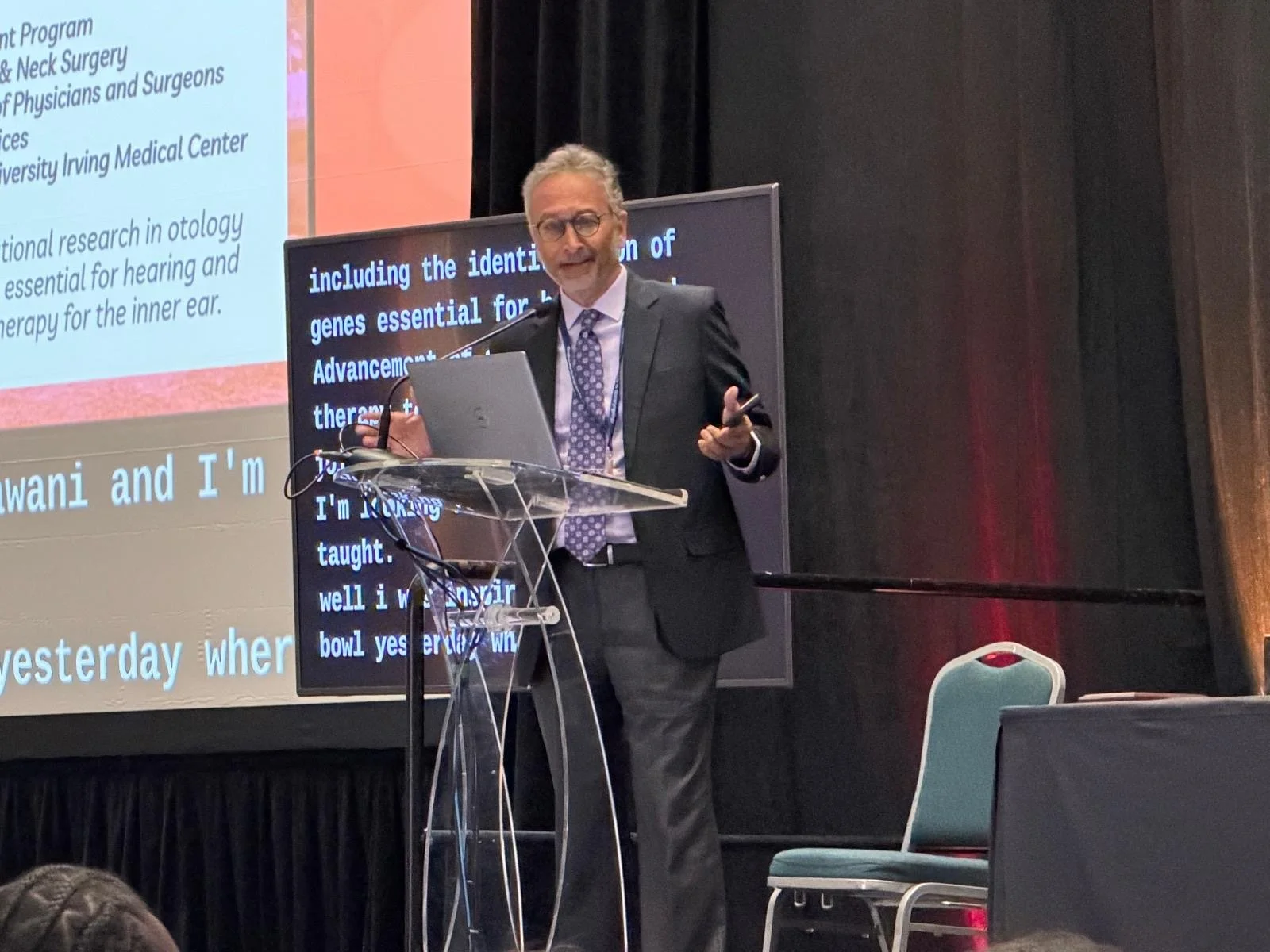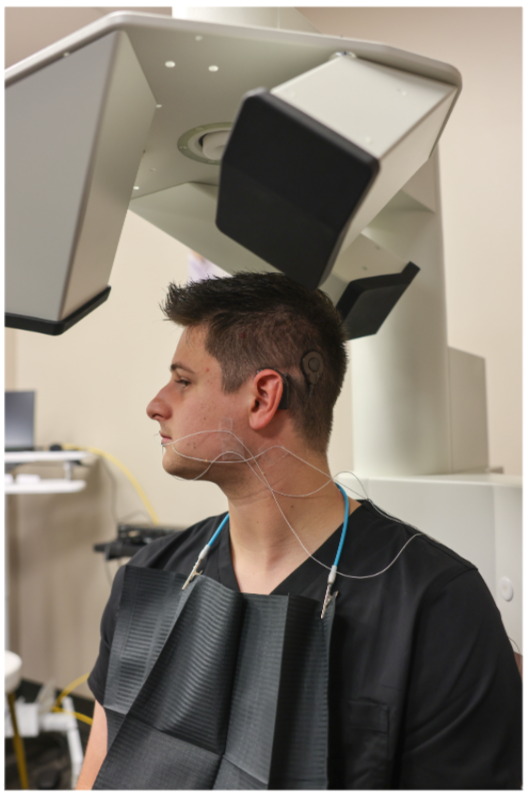By Susan Monroe
I started my search for hearing aids around 2002, a couple decades ago. I had one aid after another that didn't work with my hearing disorder. I saw something on the evening news about a new prototype, so I contacted the inventor and volunteered to try it.
It was a huge black disk that sat on my chest with a neck loop… kind of like an enormous medallion. The control buttons were situated around the outside of the circle. I was teaching high school so of course I had to explain to each class what this weird monstrosity of a necklace was.
Susan Monroe in a photo from her teaching days.
I explained each button—except the last one, which was on the top right side. They, of course, had to ask. I'd offhandedly explain, "Welllll… this is just a very small taser...." They would all exclaim, "NUHHHH UHHHH."
Then at least one kid would quietly ask, "Really??"
Teachers need some way to keep kids in line!
And as my hearing deteriorated, it became harder and harder to understand what teenagers were saying because they mumbled at warp speed. I'd ask all the time for them to slow down, but they didn't.
Now and again, I'd say, very quietly, "I have something really important to tell you." They would lean forward, and I'd mimic them, speaking nonsense syllables very quietly and very quickly. They would say, "WHAATT???"
And I would yell, "EXACTLY!! THAT'S MY POINT!! WHAT?????"
Sometimes that worked for a while.
And sometimes I'd listen to someone almost whispering, and I would answer them with a very intent look on my face, and give them a pretty long explanation, but I wouldn't actually use my voice. I'd just mime and move my mouth while my expression remained earnest.
It confused them. That was my point. It was exhausting to keep reminding them that they had to speak up for me to hear. Though, even teachers who did not have hearing loss also had trouble understanding teen speech!
We recently moved to the Raleigh, North Carolina, area to help care for two young grandkids. One problem of changing cities is finding new doctors and dentists. We're pretty old, so there are a lot of doctors.
One of my pet peeves is that doctors (and their staff) rarely look me in the face when talking to me. I have solved this problem. On the top of any intake sheet, I write this:
“I am a retired high school teacher. I am also hearing impaired. If you do not look me directly in the face when you speak to me, I will give you detention."
They laugh—and they tend to remember! I was inspired to share my experiences because of the article titled, "Educate, Educate, and Advocate, Advocate” (in the Spring 2023 issue of Hearing Health).
I am a fierce advocate.
Susan Monroe lives in North Carolina.







Our new public service announcement “Let’s Listen Smart” recognizes that life is loud—and it’s also fun. And the last thing we want to do is stop having fun! We just need to listen responsibly.